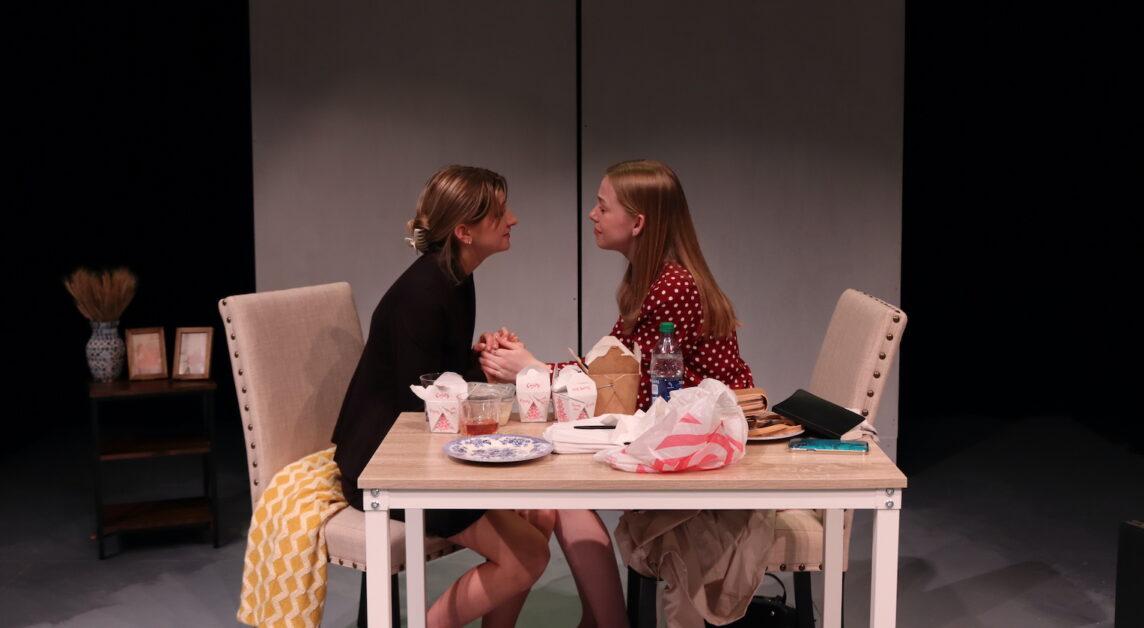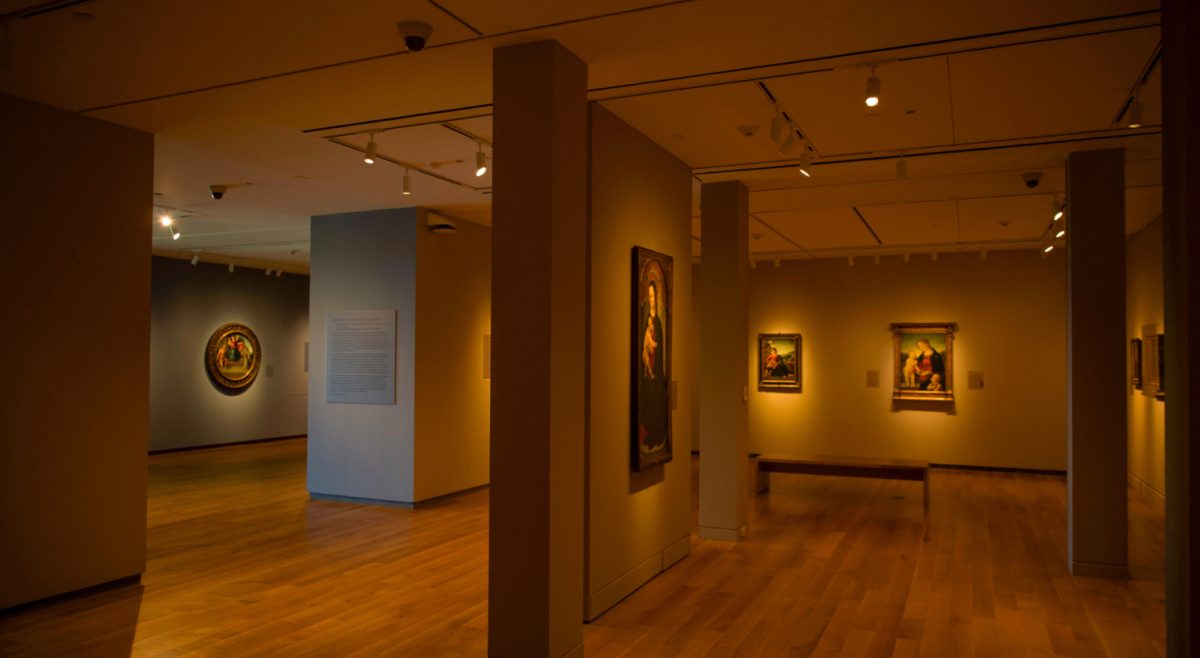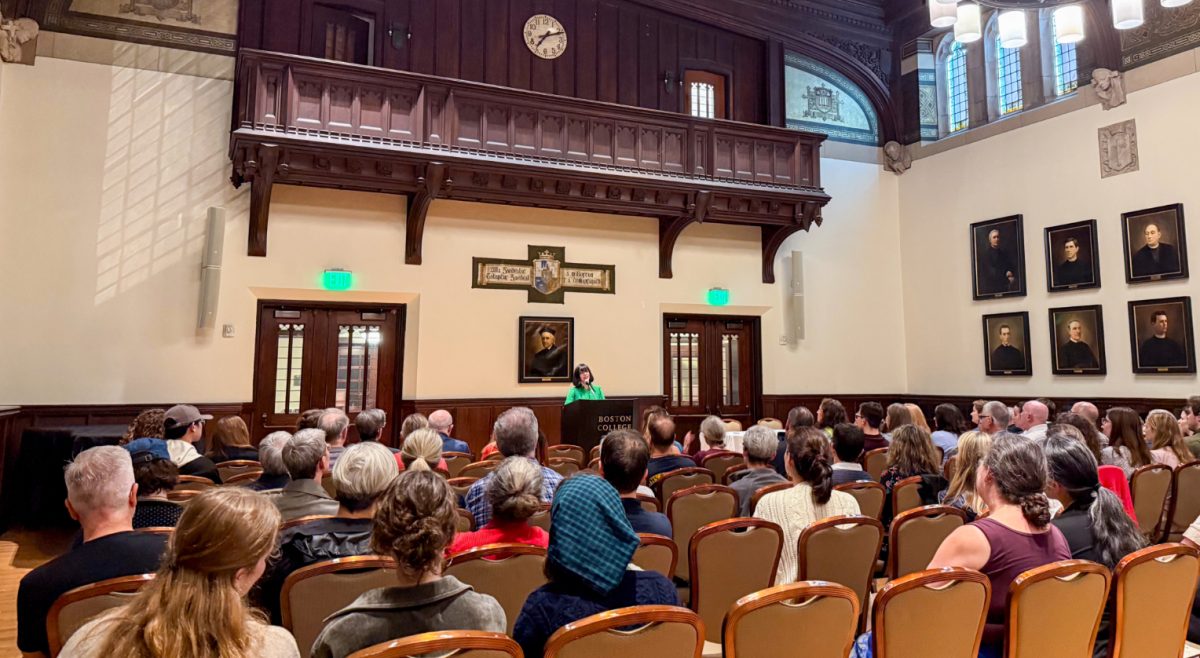Entering the Bonn Studio Theater, audience members’ eyes fell upon a neutral-colored, gray set design composed of different sized blocks, several towering picture frames, and a singular black leather handbag. But the simple set design offset the deep and complex themes that arose as The Other Place unfolded.
Emma Thompson, MCAS ’23, directed the play originally written by Sharr White. Presented by the Boston College Dramatics Society, the play follows the story of a woman facing early-onset dementia. The show opened on Thursday and ran through Saturday.
The story illustrates the protagonist’s gradual memory deterioration, the effects her condition has on her husband Ian, portrayed by Zachary Kariotis, MCAS ’25, and the pain she endures from the resurfacing of memories.
As the lights dimmed in the theater, the audience hushed. The entire theater went dark as the sound of someone walking in high heels filled the empty space. Olivia Sheridan, MCAS ’22, portraying Juliana, the play’s protagonist, stood proudly in center stage wearing a black business suit.
Between portions of Sheridan’s monologues, other characters entered the stage by walking through one of the frames surrounding the stage. Each frame represented a different time frame in Juliana’s life. The play flashed back and forth between the present and past, and each time as Juliana gave a presentation at work about a new medical drug.
Every time the characters exited the stage, eerie, unsettling music played while Sheridan launched into the next segment of her monologue.
The audience grappled with the different threads of Juliana’s life as different characters referenced her recent “episode,” where she became hostile during the presentation.


The characters also mentioned “The Other Place,” a reference to both the place Juliana goes to during her episodes of dementia and to Ian’s and her old house on Cape Cod. Each time Juliana said the words “the other place,” synchronized lights flashed blue in the white-curtained backdrop of the scenes.
Juliana constantly berated her husband and accused him of infidelity, and initially, her off-putting remarks humored the audience and garnered laughter from the crowd. Sheridan’s witty lines and dark sense of humor often had the audience chuckling.
But members of the audience gradually witnessed Juliana become less and less sure of herself as characters around her questioned her personality change. There were also several moments in which Juliana repeated the same words from a previous scene without any recognition of what happened.
In one scene, her husband Ian was unable to handle Juliana’s symptoms while at one of her doctor’s appointments. The audience’s faces fell as Ian yelled over Juliana, who curled up and would not stop shaking her head, saying “The Other Place” over and over again. As the play descended from dark humor to intense and tragic scenes, some members of the audience shed tears.
During Sheridan’s monologues, where she presented a slideshow to an imaginary room of scientists, she yelled “next” to change slides, which queued the backdrop light to switch to a different color and signaled a scene change.
As the play progressed, the audience discovered more about Juliana’s traumatic past. These moments unearthed themselves when Juliana engaged in phone calls with her daughter on the stage. But these scenes left the audience questioning which parts of the show were reality and which parts existed solely in Juliana’s imagination.
After watching a play that grappled with serious themes of mental illness, emotional familial interactions, and grief, the audience had many unanswered questions. The Other Place played on the minds of the audience members long after exiting the theater.













